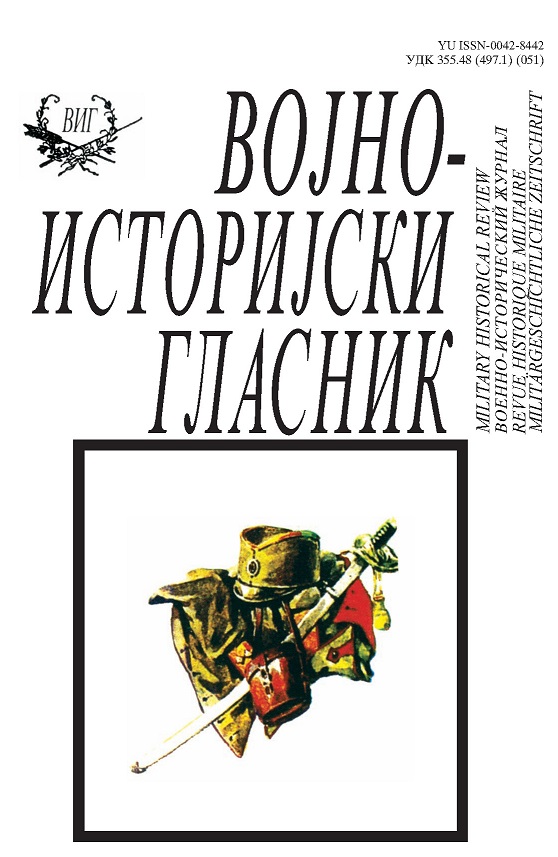Утицај европеизације српске војске на модернизацијске процесе у држави и друштву крајем 19. века (прилог проучавању друштвене историје)
The Impact of the Serbian Armed Forces’ Europeanization on the Processes of Modernization in the State and Society at the end of the 19 Century (supplement to social history study)
Author(s): Slavica Ratković-KostićSubject(s): Governance, Military history, Social history, Social development, 19th Century, Sociology of Politics
Published by: Institut za strategijska istraživanja
Keywords: Serbian Army; Europeanization; modernization; 19th century; social development; social history;
Summary/Abstract: During the final two decades of the 19th century and the first decade of the 20th century, the Kingdom of Serbia tried to modernize and Europeanize the Serbian Army in order to organize it in a modern way. As changes in society influenced the Army, changes in the military sector also influenced Serbian society. The role of the Army in the general social modernization and Europeanization of Serbian society is indisputable, though the military aspect was not always apparent. It was partly visible and partly hidden, due to the nature of this institution. In order to carry out modernization, it was necessary to develop military industry, as well as to develop branches of the economy that were useful to the military, to organize transportation (railways, public transport, telegraph and telephone lines) and to improve the general cultural and health levels of the country. Development of industrial production began in the interest of society and domestic trade. New communications were established and the old ones revived, especially those of strategic importance. Officers were the elite of the society and made the improvements possible. They were well educated in their specific fields, but also in general. They were among the most educated Serbs at the time and initiated many activities. They spread European culture among the people.
Journal: Vojnoistorijski glasnik
- Issue Year: 2008
- Issue No: 2
- Page Range: 17-35
- Page Count: 19
- Language: Serbian

